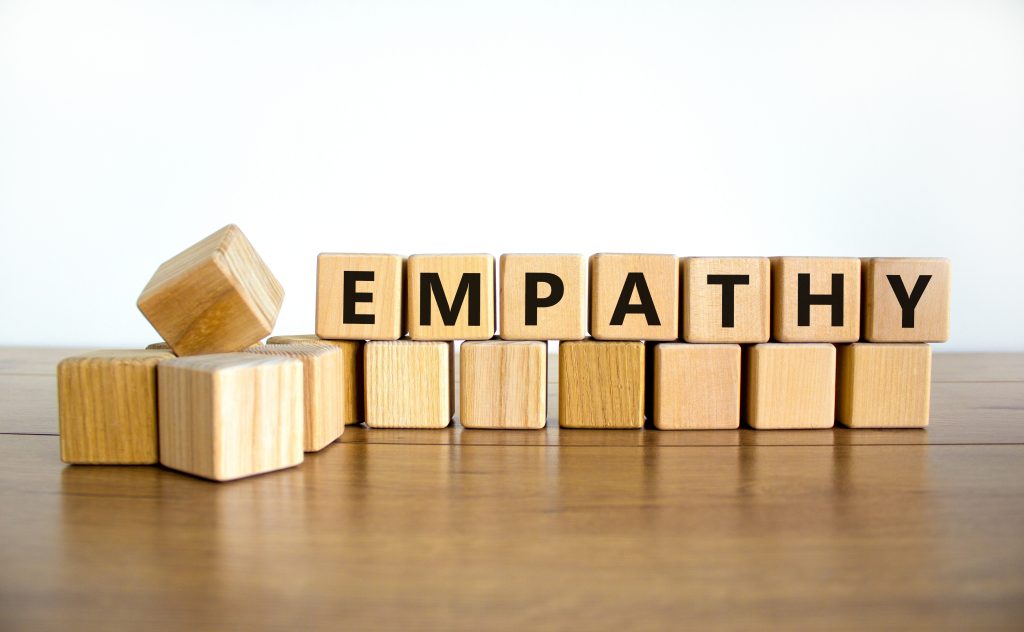Empathy: The Heart of Counseling

Understanding the Transformative Power of True Connection
In the world of counseling, empathy isn’t just a skill, it’s the cornerstone of our profession. Often misunderstood in popular culture as simply “feeling sorry” for someone, empathy in counseling reaches much deeper. It’s not about sympathy or surface-level concern. Instead, empathy is the counselor’s ability to fully understand a client’s emotions, thoughts, and experiences, especially in their lowest moments.
What Is Empathy, Really?
Empathy is the capacity to understand and feel what another person is experiencing from within their frame of reference. It is a trained skill central to therapeutic rapport that sets effective counselors apart. For Christian counselors, this understanding is also rooted in a biblical view of humanity: that all people are inherently flawed, and that grace and compassion are essential to healing.
As counselors, we often encounter individuals in deep crisis: grief, addiction, anxiety, and family breakdown. These moments require more than good technique; they require a willingness to lay aside judgment and connect with someone at their most vulnerable.
Breaking the “Us vs. Them” Mentality

One of the most significant challenges to empathy is the innate human tendency to divide the world into “us” and “them.” Whether consciously or unconsciously, we may believe that we are somehow superior or more morally grounded than those who are struggling. But this mindset erodes empathy and ultimately, the power of the counseling relationship.
From a Christian worldview, we understand that all have sinned and fall short of the glory of God (Romans 3:23). Recognizing our shared brokenness allows counselors to approach clients with humility, not superiority.
Confronting Our Illusion of Specialness
In The Gift of Therapy, psychiatrist Irvin Yalom shares a story about visiting an optometrist for worsening vision. When he told the doctor his age, the response was simple: “Forty-eight, eh? Yep, you’re right on schedule!” It was a jarring moment for Yalom, a reminder that he, like everyone else, was subject to the passage of time and the fragility of the human condition.
Yalom calls this the denial of death through personal specialness, the unconscious belief that we are somehow exempt from the painful realities of life. We all want to believe that hardship, loss, decline, and suffering happen to others, not us. But in counseling, we are called to confront this illusion, to accept our shared human vulnerability.
As counselors, this awareness is not disempowering; it’s liberating. It allows us to truly empathize. We are not looking down on someone from a place of strength, but rather reaching across from a place of common humanity. We are all “on schedule.” This realization humbles us, keeps us grounded, and prepares us to walk with our clients through their darkest valleys.
What Social Psychology Teaches Us About Human Nature
Social psychology offers compelling insights into human behavior, reminding us that destructive choices are not confined to a few “bad apples.” Several classic studies illustrate how easily any of us could act in harmful ways under the right circumstances:
- The Bystander Effect (Darley & Latané, 1968): When people assume someone else will help, they often don’t. This shows how easy it is to look away from suffering.
- The Milgram Experiment (1961): Participants administered what they believed were deadly electric shocks when instructed by an authority figure, revealing how obedience can override moral judgment.
- The Stanford Prison Experiment (1971): Highlighted how quickly ordinary people can adopt abusive roles in toxic environments.
- The Robbers Cave Study: Demonstrated how groups quickly develop in-group/out-group hostility, and how cooperation toward a shared goal is the only way to dissolve conflict.
These studies reveal an uncomfortable truth: we are all capable of failing. And in that realization, we find the foundation for genuine empathy, an understanding that it could just as easily be us in the client’s chair.
Empathy as a Redemptive Experience
When counselors embrace this view, empathy becomes not only a professional tool but a redemptive act. By empathically stepping into someone else’s pain, we help clients break free from shame and isolation. We offer a bridge to a way forward.
From a faith-based perspective, this process points people back to hope, to healing, and ultimately, to God’s redemptive work in their lives.
A Common Goal: Healing and Restoration

The Robbers Cave study (cited above) demonstrates that the only way to overcome division is to strive for a common goal. That’s precisely what counseling offers. In the therapeutic space, empathy enables the counselor and client to walk toward healing together. It’s not about fixing someone, it’s about walking with them, side-by-side.
And for Christian counselors, this journey is sacred. We have the profound privilege of reflecting Christ’s love to those who feel forgotten, being a friend to the friendless, and bringing hope to the hopeless. In a world of noise and division, empathy allows us to restore connection both with others and with God.
Are You Called to a Life of Empathy?
If you are a counselor or considering becoming one, know this: your empathy matters. Your willingness to see others, truly see them, can change lives. At Christian Counseling Associates, we believe in the power of Christ-centered counseling rooted in empathy, humility, and hope.
If you feel called to serve, we invite you to explore opportunities to join our team. Together, we can offer a transformative connection in a broken world.
Join our Team today! Click here to apply!




